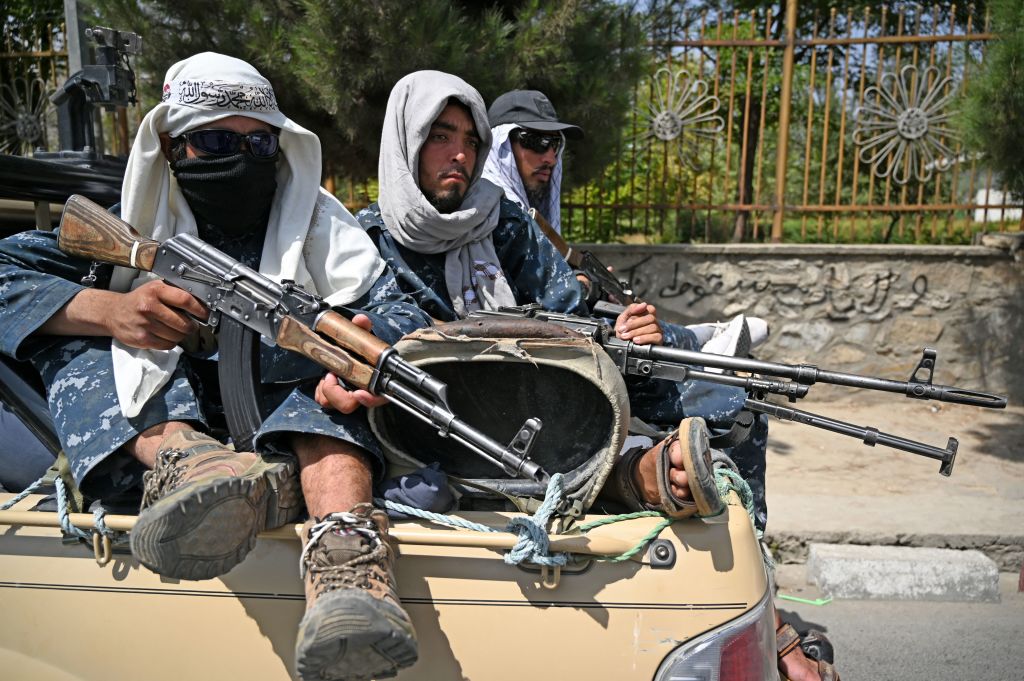- Saturday, April 20, 2024

By: Shubham Ghosh
EVER since the US-led western troops invaded Afghanistan in October 2001 after the devastating 9/11 terror attacks, the region’s geo-strategic and geo-political significance has changed and no other country had faced more pressure in dealing with the situation than Pakistan, Afghanistan’s immediate neighbour to the east.
Post Washington’s invasion in Afghanistan during which the Taliban were dethroned and Al-Qaeda was cornered, Pakistan’s own strategic convenience took a serious hit. Islamabad had been enjoying an advantage after the erstwhile Soviets left Afghanistan in the late 1970s, thanks to the US’ patronage. But when terror originated from the same Afghanistan to hurt America’s interests, the alignment of interests between the US and its time-tested ally Islamabad was broken. Suddenly, Pakistan found itself sandwiched between the US’ war on terror and the regional terror groups who saw the superpower as a major enemy.
ALSO READ: US will look at Pakistan’s role in last 2 decades: Blinken
The tightrope-walking continued for two decades till the US decided to pull out of Kabul, paving the way for the Taliban’s return to power. While the international community is not impressed with this development, Pakistan, owing to its unique equation with Afghanistan, at least at the non-government levels, finds it a mixed news.

And it was abundantly clear when its ambassador to the US, Asad Majeed Khan spoke during a webinar organised by the Stimson Center, Washington DC. In the event moderated by Elizabeth Threlkeld, director of the Stimson Center South Asia Program, Khan started by saying that Afghanistan is at a “deflection point”.
‘Terror from Afghanistan soil could hit Kashmir’
The diplomat said some wishful things about Afghanistan, like for example, the world can either engage with Afghanistan or abandon it and that Pakistan wants a rule of there under the new regime and that its territory should not be used against Pakistan’s interests. He said not an alarming refugee influx has been seen yet from Afghanistan and commercial traffic has been restored. He said the security situation in the country has improved but the economic future looks uncertain.
David O Smith, a distinguished fellow with the Stimson Center South Asia Program who was also present at the webinar, asked the Pakistani ambassador some to-the-point questions and there was not much clear answer that came from the diplomat.
Smith told Khan that there is realistically no either-engage-or-abandon choice when it comes to Afghanistan. He also challenged Khan over the claims the latter had made at an older event that Pakistan’s internal security has improved. He mentioned about the deaths of a few Pakistani soldiers in an IED blast in North Waziristan recently and said the situation in that country has only worsened over subsequent years. He questioned Pakistan prime minister Imran Khan supporting the Taliban takeover of Afghanistan saying they broke the chains of slavery and his seeking America’s intervention on the question of Kashmir with India.
The Pakistani premier’s criticism of US secretary of state Antony Blinken’s remarks to the Congress about Pakistan having a multiplicity of interests some of which are at odds with the US also baffled Smith.
He asked how these instances prove the point the Pakistani ambassador is trying to drive home: that the interests of the US and Pakistan are aligned.
Ambassador Khan, as expected, refused to agree with Smith on many of these points and he did not even care to respond to some of them. But his words conveyed a certain message: Pakistan is not too unhappy with the development in Afghanistan and a major reason for that being India losing an ally in Kabul. Khan desperately tried to establish facts that Pakistan has done as much in dealing with Taliban’s Afghanistan and helped evacuating people, including Americans and hence was surprised to see Blinken speaking about reassessing ties with Islamabad.
He also spoke about the National Action Plan that the former Nawaz Sharif government of Pakistan had launched to sternly deal with terrorists in the country but it is not unknown a fact that Islamabad did it when terrorism hit it like a Frankenstein, culminating in the deadly mass shooting in an army school in Peshawar in December 2014 that had resulted in death of hundreds of children.
No other country in the world has as complicated a policy on terror as Pakistan has. That country has tried to make use of terrorism as an extended arm of its foreign-policy mechanism to hurt rival India but post-9/11, such sinister designs have only backfired. After the US’ withdrawal from Kabul, Pakistan will be relieved but that relief is not a permanent one.
As South Asia expert Michael Kugelman told India Weekly recently, “Islamabad will try to get the Taliban in Afghanistan to curb the TTP (Tehrik-i-Taliban Pakistan or Pakistani Taliban), but that won’t be easy. The two groups may have different targets, but they share a general ideology and have partnered together in Afghanistan before. Also, the Taliban doesn’t have a habit of cracking down on other terror groups, aside from Islamic State.
Khan tried to blame India during the webinar a number of times, particularly mocking its media saying jokes are doing rounds that the Indian media has reported that Pakistan is sending submarines to Kabul to defeat the Taliban’s opponents. Overdoing by a section of Indian media perhaps is not completely false a claim but only by blaming India, Pakistan is not going to gain much of its lost ground in Afghanistan. At least, its old ally – the US – will not trust it too soon.
![]()